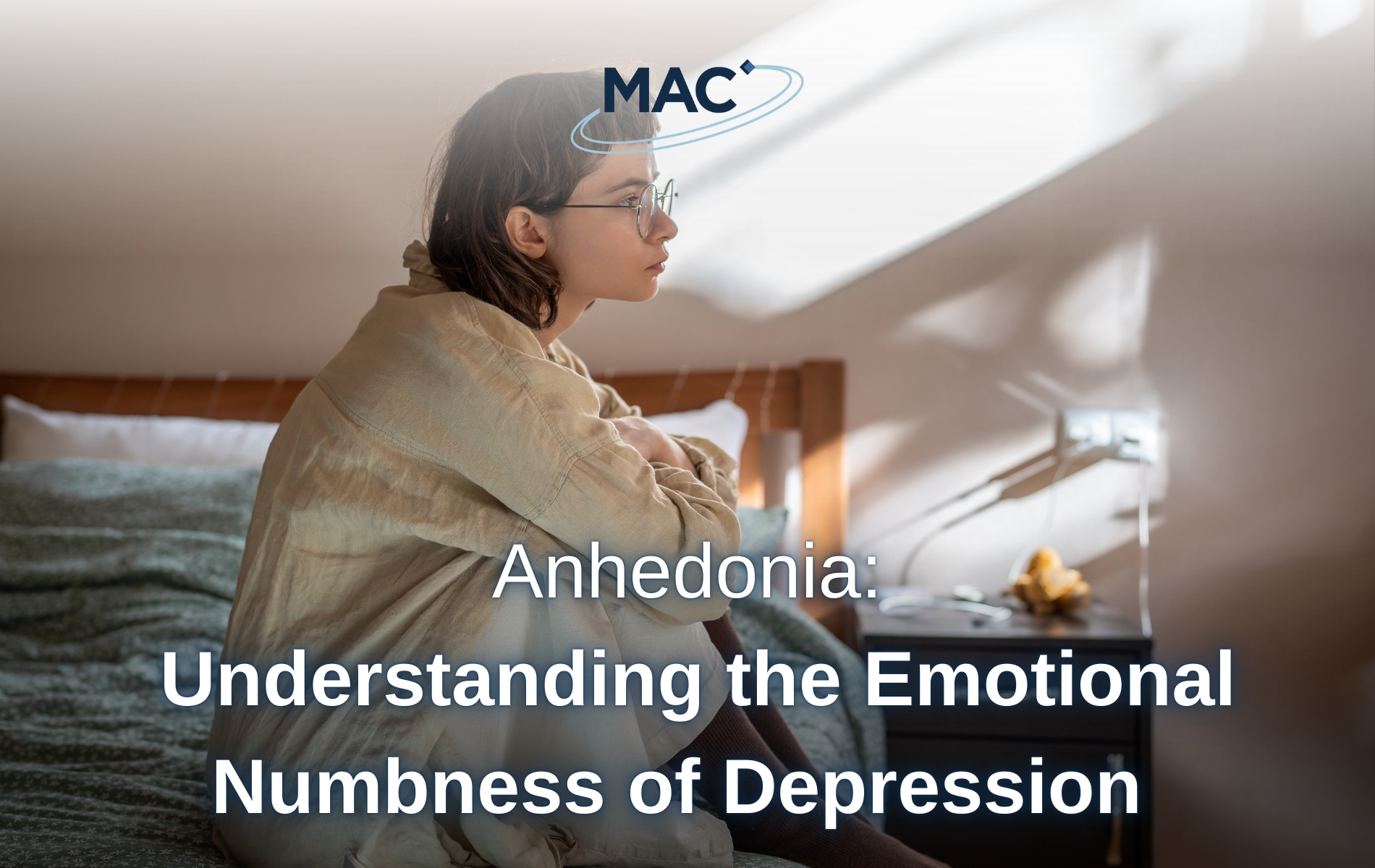Depression affects around 280 million people wordwide1. However, among its various symptoms, anhedonia remains a particularly significant challenge. Many people living with depression struggle to experience pleasure in activities they once enjoyed, often described as ‘emotional numbness’. Traditional antidepressants offer limited effectiveness in treating anhedonia in depression. The good news? New clinical trials are exploring innovative potential new treatments that may offer hope to those affected by the condition.
What is Anhedonia?
According to DSM-5 (the current method to detect and diagnose mental health conditions), anhedonia refers to the lack of interest in enjoyable and rewarding activities, along with the reduced ability to experience pleasure from previous positive stimulants2. Anhedonia is a core symptom of depressive disorders, and is also common in other psychiatric conditions, such as schizophrenia 2 3.
Anhedonia is multifaceted; while it involves difficulty in feeling pleasure, it can also mean less motivation to seek out enjoyable activities or struggling to learn from positive experiences3.
What are the possible causes of anhedonia?
Research suggests that stress could be related to developing anhedonia as it impacts the brain’s reward system and other areas of the brain, which may contribute to the loss of pleasure. What’s more, prolonged stress can lead to inflammation in the brain (making it more likely to experience pleasure loss) and might also interfere with dopamine, a key chemical (neurotransmitter) for reward4.
Other research highlights that akin to some mental health conditions, anhedonia could have a genetic component, and therefore an individual’s risk for developing anhedonia could potentially be estimated4.
However, to date, the precise neurobiological mechanisms of anhedonia in major depression are not fully understood3; More research is needed to determine the exact causes of anhedonia.
Looking for alternative treatments for major depressive disorder?
Anhedonia is closely connected to depression. While many people primarily associate depression with sadness and hopelessness, the loss of enjoyment in life can also bring significant challenges towards well-being and is a common symptom of depression.
Research shows that people with major depressive disorder (MDD) who experience symptoms of anhedonia tend to have a harder time recovering than those who don’t share this symptom. These individuals often face more severe impairments in physical health, mental wellbeing and social functioning.
Anhedonia is also linked to more severe depression and a higher risk of suicidal thoughts, making it an especially challenging symptom to manage. The inability to gain joy and happiness from activities can lead to an emotional numbness and heighten the feelings of hopelessness and despair.
Whilst antidepressant treatments often help with overall depression symptoms, research has suggested that they may not be as effective in specifically addressing anhedonia4. This gap in treatment highlights the importance of finding more effective treatments for depression with anhedonia.
Not responding to your current depression treatment?
Depression is often treated with antidepressants, but not everyone has a positive response. MAC Clinical Research is currently seeking people that have been to their GP or health team with low mood or depression and would like to take part in new studies to evaluate the safety and efficacy of investigational medications, including a potential treatment for anhedonia in depression. If you would like to learn more about this research and discover if you’re eligible to take part, please register your interest via our website.
References
- World Health Organization – Depression Disorder (Depression)
- Rizvi, S. et al. 2016 – Assessing anhedonia in depression: potentials and pitfalls
- Cooper A, J. et al. 2018 – Anhedonia in depression: biological mechanisms and computational models.
- Serretti, A. 2023 – Anhedonia and depressive disorders




